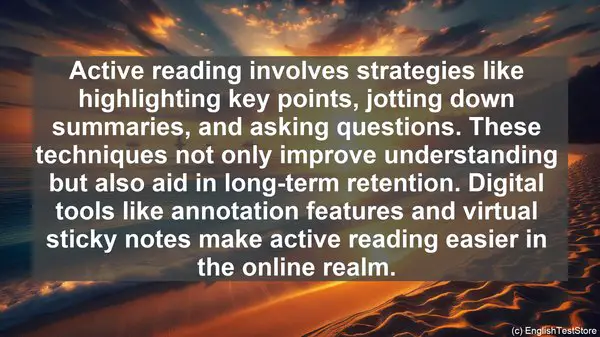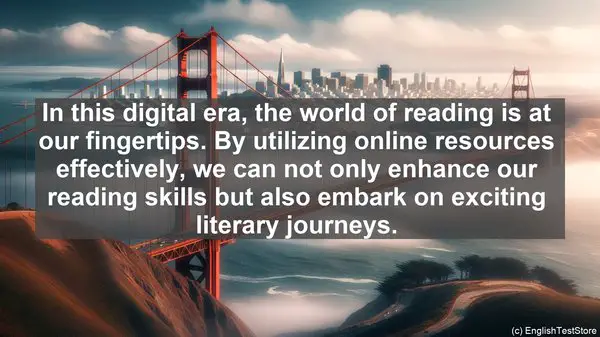Introduction: The Digital World and Reading
Hello students! In today’s digital age, the world of reading has expanded beyond traditional books. With countless online resources available, it’s crucial to know how to navigate this vast digital library effectively. In this video, I’ll be sharing 10 tips to help you make the most of online resources for enhancing your reading skills.

1. Choose Reliable Platforms
When exploring online resources, it’s essential to select reliable platforms. Websites like Project Gutenberg and Open Library offer a wide range of free, high-quality books. Additionally, many renowned publishers have their own digital libraries, ensuring credibility and accuracy.
2. Utilize E-Readers and Reading Apps
E-readers and reading apps provide a seamless reading experience. Features like adjustable font sizes, highlighting, and note-taking make the reading process more interactive and personalized. Some popular e-readers include Kindle, Nook, and Kobo, while apps like Goodreads and Libby offer extensive digital libraries.
3. Leverage Audio-Visual Resources
Reading isn’t limited to text. Audio books, podcasts, and educational videos are fantastic resources for auditory and visual learners. They not only enhance comprehension but also make the learning experience more enjoyable. Platforms like Audible, Spotify, and YouTube have a plethora of such resources.
4. Engage in Active Reading
Active reading involves strategies like highlighting key points, jotting down summaries, and asking questions. These techniques not only improve understanding but also aid in long-term retention. Digital tools like annotation features and virtual sticky notes make active reading easier in the online realm.

5. Join Online Reading Communities
Being part of an online reading community opens doors to discussions, recommendations, and diverse perspectives. Platforms like Goodreads, Book Riot, and Reddit’s book-related subreddits are excellent places to connect with fellow readers and gain insights.
6. Follow Reputable Book Reviewers
With the abundance of books available online, it can be overwhelming to choose. Following reputable book reviewers, either on social media or through their blogs, can help in making informed decisions. Some well-known reviewers include The New York Times Book Review, NPR Books, and Booklist.
7. Create a Personalized Reading List
Having a reading list ensures a structured approach to reading. Online platforms like Goodreads and LibraryThing allow you to create, organize, and track your reading lists. You can also explore curated lists and recommendations based on your interests and genres.
8. Make Use of Online Dictionaries and Thesauruses
Encountering unfamiliar words is common while reading. Online dictionaries like Merriam-Webster and Oxford English Dictionary provide quick definitions, while thesauruses like Thesaurus.com offer synonyms and antonyms. Some platforms even have browser extensions for instant word lookups.
9. Take Advantage of Online Courses and Workshops
Online learning platforms like Coursera, edX, and Skillshare offer a multitude of courses on various aspects of literature, writing, and reading. These courses not only enhance your knowledge but also provide opportunities for interactive discussions and feedback.
10. Maintain a Reading Schedule
Consistency is key when it comes to reading. Setting a regular reading schedule, even if it’s just a few minutes a day, helps in building the habit. Online tools like Google Calendar or dedicated reading apps can assist in creating and sticking to a reading routine.
